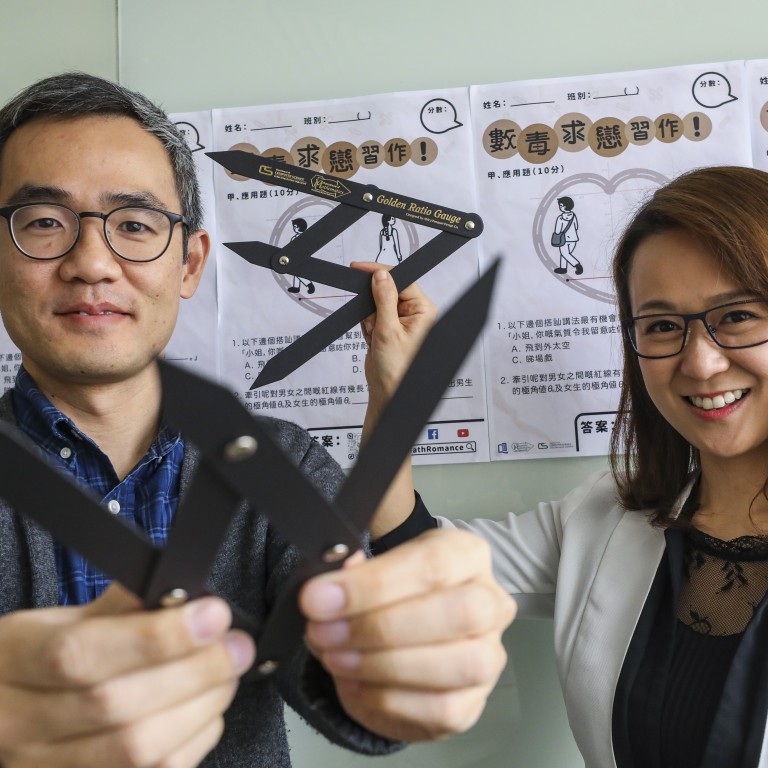
All you need is love … in maths: Hong Kong educators come up with formula to capture student interest in subject
- Baptist University lecturers say teaching methods have to keep up with the times, and best way is to infuse theories and numbers into everyday life
Lecturers from Hong Kong Baptist University have claimed they can capture students’ interest in their course by combining two subjects that some may consider equally complex and confounding – love and mathematics.
“People often associate maths with geeks or nerds but we’re here to tell you that with the right formula, you too can become popular,” maths expert Silian Wong Jing-kiu said, referring to how she teaches maths theories by using dating examples in real life.
Wong and colleague Mark Lau Shek-kwan from Baptist University’s department of mathematics run a project called Maths Romance that aims to advocate a subject some may consider as dull.
“For a lot of young students, their first thought when it comes to maths is that ‘it’s boring’ or ‘when am I ever going to use this in real life?’, but we want to prove to them that maths does not have to be dreadful,” Wong said.
For a lot of young students, their first thought when it comes to maths is … ‘when am I ever going to use this in real life?’
“It can be fun, and relating it to romance is the best way to catch everyone’s attention.”
Citing how she teaches the Drake Equation, a formula astronomer Dr Frank Drake used to calculate the possible number of advanced civilisations in our galaxy who can make contact with humans, Wong said it could be compared to theorising how many probable suitors one would find in the city.
“Applying the equation, you’d multiply the population of the Earth by the city’s population, times the fraction of women or men, with age percentages, education factors and other parameters.
“The results will give you the number of potential partners that are living in Hong Kong and fit your preference.”
The educators took this approach in all maths theories they taught, working with students and other computer science, communication and advertising majors in the university.
The group of 15 brainstormed how to correlate maths into everyday life, with a focus on dating and interpersonal communications.
How to help children avoid panicking over maths problems and give them support
Since last year, they have posted more than eight videos and blogs on their website, hoping to trigger young people’s interest in the subject and showing that solving equations can be fun.
According to the Hong Kong Examinations and Assessment Authority, the number of students who took up extended maths, which is an elective under the Hong Kong Diploma of Secondary Education exams, has plunged since the entrance tests were launched in 2012.
The authority’s data that year showed 16,155 students signed up for the algebra, calculus and statistics tests. By 2017, that number was nearly halved to just 8,171.
The figure hit a new low last year, with only 7,531 students sitting for the subject.
Lau said the dipping interest in maths was a product of how technology was often portrayed as the more glamorous cousin of the field.
“Society understates the idea of maths. People love the digital world and often times, we highlight STEM [science, technology, engineering and mathematics], AI or big data to better package products but forget the fundamentals, which is a knowledge of maths,” Lau said.
“It’s a basic skill, just like learning a language. The fast pace of technological innovation reminds us that we also need to keep up in the way we educate the younger generation about maths.”

